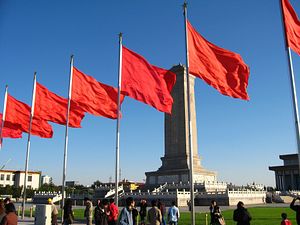A few weeks ago, I wrote in these pages about the fascinating 1970 dialogue between Arnold Toynbee and Japanese professor Kei Wakaizumi, which was later edited and published in book form as Surviving the Future.
More than two years later, Toynbee sat down with George Urban, the Hungarian writer who moved to England in 1948, wrote for Encounter magazine, and worked for the BBC and Radio Free Europe.
The Toynbee-Urban dialogue consisted of twelve radio discussions in 1972 and 1973 that were published in 1974 under the title Toynbee on Toynbee. Urban had familiarized himself with Toynbee’s magisterial A Study of History and his lesser works.
The first part of the dialogue dealt with Toynbee’s approaches to the study of history. Toynbee acknowledged that all historians’ views of history are shaped by their life experiences as well as their research. Every historian, he explained, “is situated in a point-moment of time, and he can only observe the universe from this shifting point-moment in his very brief life.” Urban and Toynbee agreed that historians bring to their studies their own prejudices and biases.
The historian, Toynbee said, must necessarily select what is significant and what is not. “A fact in history,” he explained, “is not really something concrete, like a brick or a stone, that you can pick up and handle; a fact is man-made in a sense — it is the result of a selection from the raw material.” And that selection is influenced by prejudice and bias.
Toynbee admitted that he was more interested in studying ancient Greek, Roman, Islamic, and Chinese history than studying the “modern, westernized world.” Toynbee attributed his partiality for a universal view of history to his admiration for Polybius.
History, he said, should be studied universally across the ages because human nature is the “permanent and regular element in human affairs.” Human nature, Toynbee said, is unchanging from age to age throughout recorded history. He decried a West-centered view of history as subjectivism, which often distorts reality. Toynbee and Urban agreed that history “is the unified study of human affairs.”
Urban and Toynbee recognized the “tragedy” of human events, the “fragility” of human institutions, the weaknesses and limitations of humans throughout history.
With that as background, Urban and Toynbee discussed the patterns of history; patterns that Toynbee spent a lifetime studying in his comparisons of civilizations.
Those patterns enabled Toynbee and Urban to suggest growing trouble within the Soviet empire and the possibility of China rising as a formidable world power.
Both sensed that the Eastern European satellites were in the long run “indigestible for Russia.” Although dominated for decades by Russian military and political power, they remained “un-Russified” in a cultural sense. In Urban’s words, “The Soviet Union’s hegemony over Eastern Europe has expressed itself since 1947, in a great many important ways, but none … has touched the ‘soul and life-blood’ of the East European nations.” A decade after these words were spoken, those same East European nations started the process that led to the unraveling of the Soviet Empire.
Toynbee and Urban then speculated on what would happen in China after Mao’s death. They foresaw Chinese “technocrats” opting for fast economic growth and technological advances. Such developments could make China a great power in a short time-span.
Toynbee spoke about the effect of China’s humiliation in the Opium War of 1839–1842 — a humiliation that lasted until the communists took power in 1949. “[I]f you have been humiliated,” he explained, “you react by becoming aggressive.” He continued: “One feeling in China must be that China must have power in the modern sense.” Toynbee suggested that an enlightened Chinese might say to himself, “we have been kicked about by Japanese, by Europeans, by Americans — everybody — and our first priority must be to get even with the modern industrialized world.”
Toynbee cautioned, however, that the Confucian attitude — which is “deeply rooted in China” — might urge “moderation and balance.” He suggested that China’s future would be a “tug of war between these two tendencies.”
Urban foresaw the danger that the Confucian tradition might be transformed into “a fully fledged, paternalistic, industrialized society rather on the Japanese model,” but without the freedom of Japan’s political system. Toynbee agreed that China could develop into a political system of rule by technocrats, “with the state acting as Confucian paterfamilias, demanding and receiving … filial obedience from the workers.”
Post-Mao China has risen to world power very much as Toynbee and Urban predicted. Although China in economic and military terms has grown quite rapidly, the Confucian tradition of moderation and balance still impacts China’s approach to the world. The “tug of war” between these two tendencies — identified more than 40 years ago by Toynbee — continues to this day.
Francis P. Sempa is the author of Geopolitics: From the Cold War to the 21st Century and America’s Global Role: Essays and Reviews on National Security, Geopolitics and War. His writings appear in The Diplomat, Joint Force Quarterly, the University Bookman and other publications. He is an attorney and an adjunct professor of political science at Wilkes University.

































